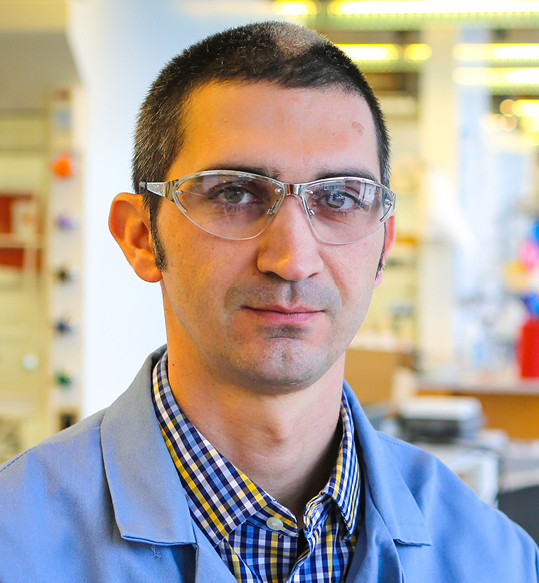Dr. Bill Wuest, Ph.D.
Antibiotic Drug Development
Emory University
Recruited: 2017
Bill Wuest pursues innovative routes to discover powerful new antibiotics. As antibiotic-resistant bacteria pose an increasingly serious threat to public health, it's a race to develop the means to fight them, making Wuest's work more essential than ever.
One of Wuest's biggest findings so far is a potential treatment for MRSA, a type of staph infection that can't be cured with conventional antibiotics. MRSA is one of the most common hospital-acquired infections, and it's particularly dangerous for elderly patients and others with weak immune systems.
In 2018, Wuest and his colleagues identified a promising treatment: synthetic retinoids. Retinoids are chemical compounds that can weaken the membranes of cells. Normally, that's a problem, because the retinoid indiscriminately attacks human cells as well as bacterial ones. But Wuest's lab, in collaboration with a team at Brown University, modified a retinoid compound so that it selectively targets bacterial cells only.
In laboratory testing, the modified retinoid compound proved an effective treatment for combatting MRSA in mice, especially when used in combination with another common antibiotic.
Wuest is also developing antibiotics to fight Streptococcus mutans, which causes tooth decay and sometimes heart disease, and Pseudomonas aeruginosa, a bacterium that is especially dangerous for people with cystic fibrosis.
Wuest's drug development framework is simple but effective. For every type of bacteria he tackles, he reviews the literature for existing but unexplored compounds that might be able to fight it. Then he modifies promising candidates in the lab. The new synthetic versions retain the beneficial characteristics of the natural compound, while minimizing unwanted side effects. And because the synthetic compounds can be reproduced in the lab, they're accessible for testing and experiments by other scientists.
These targeted antibiotics, designed to fight a single kind of pathogen, differ from conventional antibiotics, which tend to attack all bacteria indiscriminately - even the good kind. That's hastened our current era of drug-resistant bacteria. But Wuest's targeted approach could help delay drug-resistance in the future.

